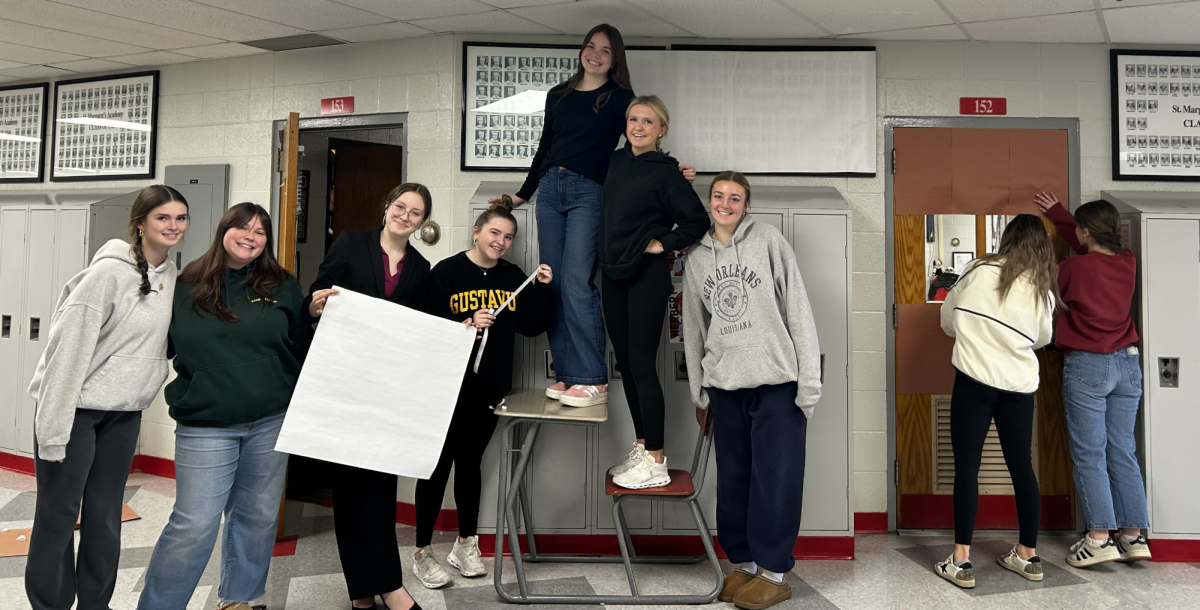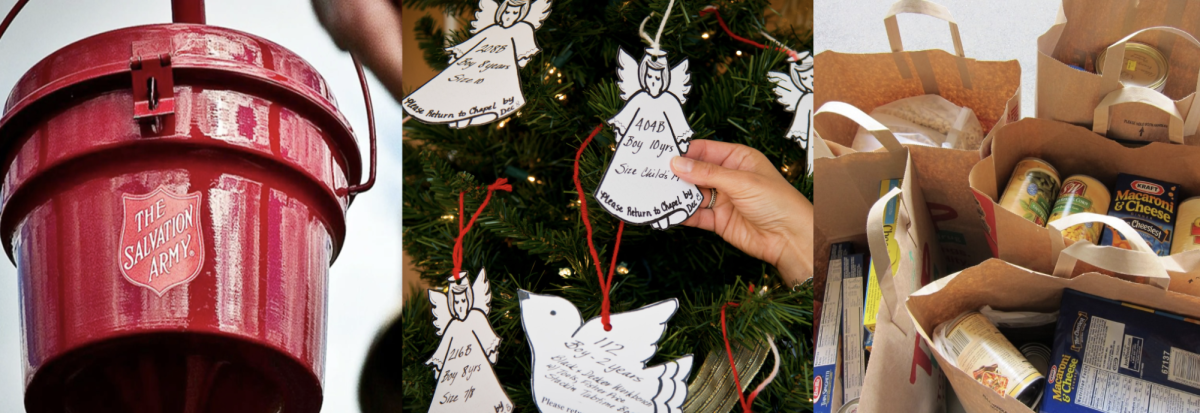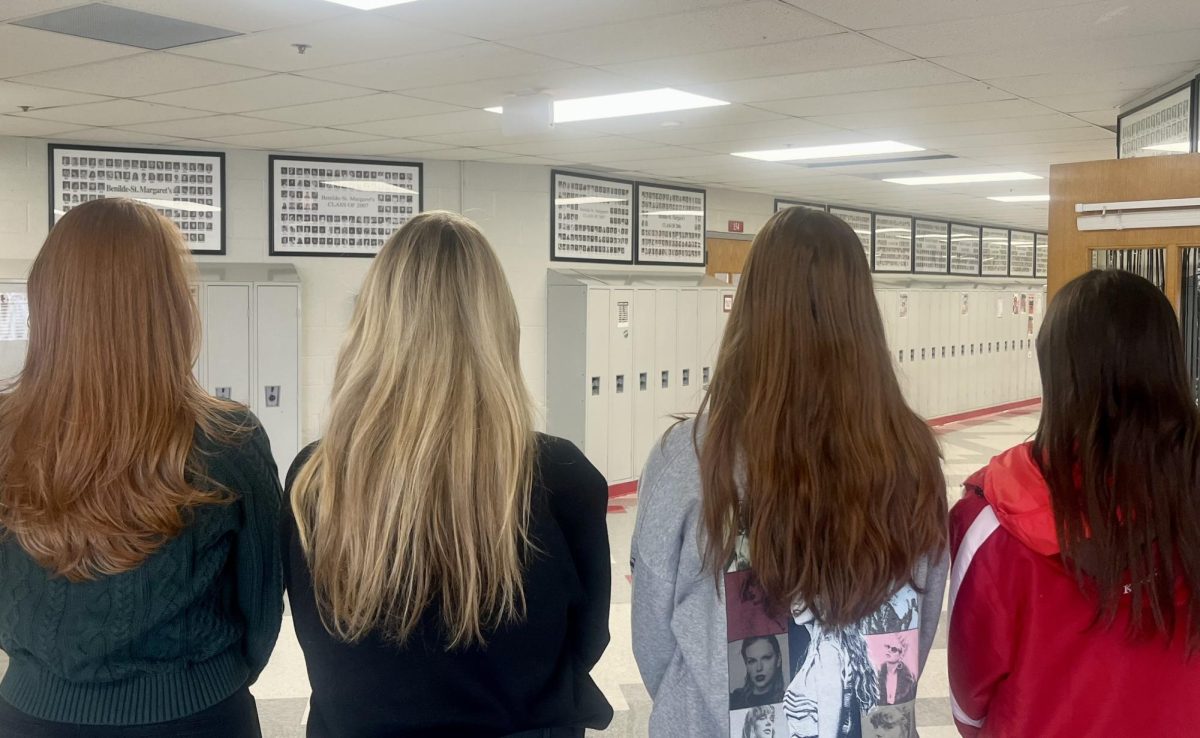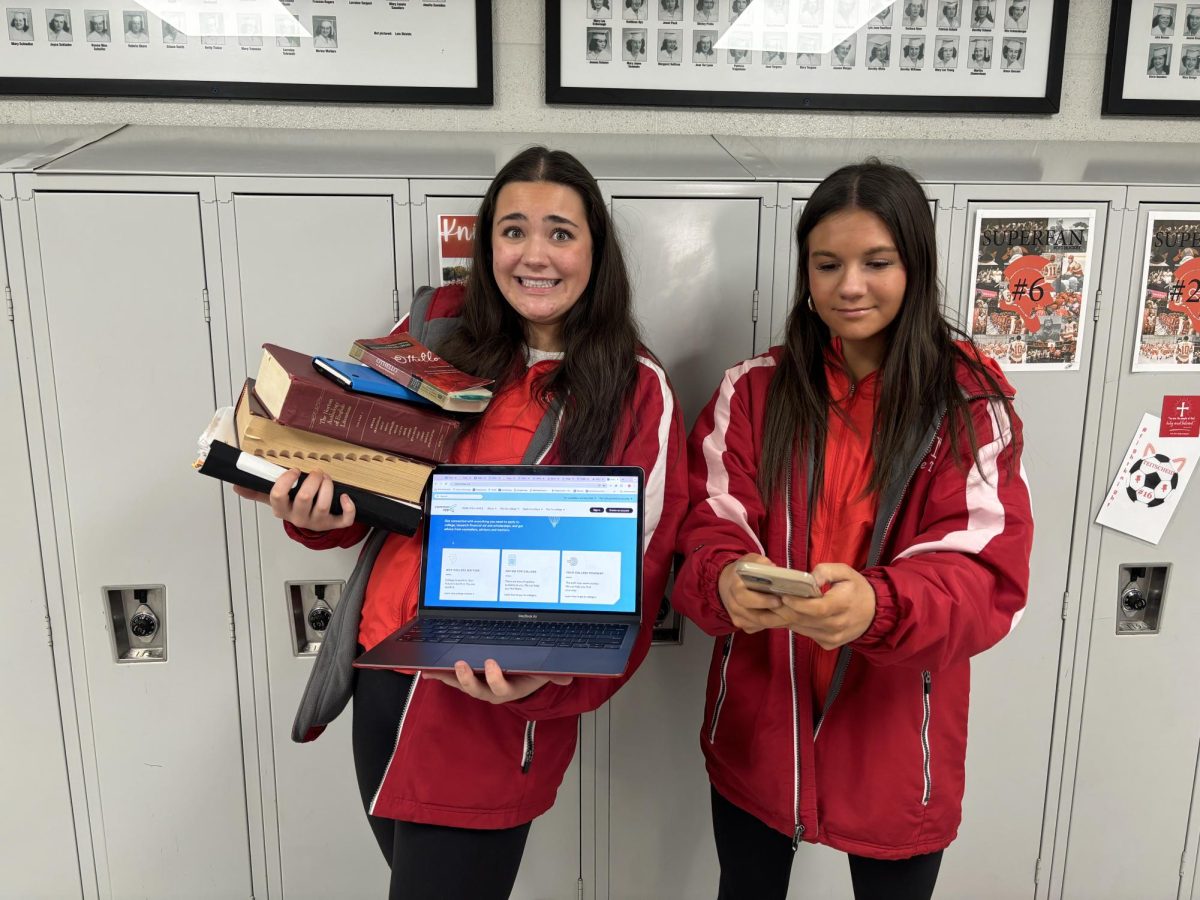While sitting down for a much-needed lunch break on a busy Thursday afternoon, I noticed something odd. The compost bin–which had once stood alongside the trash and recycling bin– was upside down. It’s been that way for quite a few months now, one might wonder if it will ever be turned right side up.
According to the National Aeronautics and Space Administration (NASA), between the years of 2002 and 2023, Antarctica shed an average of 150 billion metric tons of ice per year. The loss of ice has made it more difficult for polar bears to hunt for food, with researchers theorizing that as long as the ice continues to melt, the polar bear population will continue to decline to disastrous numbers. NASA concludes that the reason for this mass melting is due to the ever-increasing temperatures in the surrounding seas.
The earth is getting warmer every day, and it’s mainly a result of the disturbingly high mass of greenhouse gasses that have been emitted into the atmosphere for the last 20 years from cars, factories, planes, and waste. The sheer volume of greenhouse gasses that have been emitted into the atmosphere in the last 20 years has resulted in a detrimental warming effect on the planet. This warming has resulted in the drastic melting of the Arctic and many other global issues. When food is not disposed of properly, it will rot in landfills and produce methane gas– a greenhouse gas almost 80 times more harmful than carbon dioxide. According to the United Nations Environmental Programme (UNEP), nearly 25% of the greenhouse gases that are emitted into the earth’s atmosphere are methane. While the BSM compost bin may seem entirely disconnected from the livelihood of polar bears almost 10,000 miles away, any contribution to the safety of our earth, no matter how big or small, should not be overshadowed.
The misuse (or rather, nonuse) of the compost bin disturbed me until I spoke with a member of the facilities team who told me that compostable items do get disposed of properly, but it’s done behind the scenes rather than in the cafeteria. “I tried for three weeks, maybe a month, to do it myself. So every single day in between lunches, I can pick things out and separate them myself. But I immediately got defeated, because you can only handle people throwing stuff on top of your own hands while you’re in the trash so many times,” Facilities and Events Coordinator Lauryn Lumpkins said.
While it is relieving to know that some items are being composted, it is nearly impossible for one person to sort absolutely everything that gets thrown out during lunch, so there is still some food scraps going to waste. This connects to a larger issue at hand: the inability of BSM students (and Americans in general) to make an effort for the betterment of the environment. According to the United States Environmental Protection Agency, only 32.1% of Americans recycled regularly (composting included) in 2018. While there are separate trash and recycling bins in the BSM cafeteria, most students agree that they are rarely used in the ways that they should be. “I feel like the general public does not [recycle correctly],” junior Camila Duarte Nava said.
However, it should be noted that there are students who make individual efforts to dispose of their trash and recycling correctly. “I think [the recycling bins are] useful because I use them correctly,” junior Clara Davis said.
Despite individual efforts, it seems to me that most BSM students are content to throw their used plastic items into the closest bin to them. Which, like improper composting, might not seem like a big deal, until you consider that almost 2 millions tons of plastic are added to the ocean surface every year. Scientists predict that by 2050, the amount of plastic in the ocean will outweigh the amount of fish, a possibility that would have cataclysmic effects on the world’s ecosystem.
Plastic in the ocean has a detrimental effect on both wildlife and humans. The effects from our private school in Minnesota are not as apparent, but looking anywhere else in the world, you can see them clear as day. Harmful chemicals from plastic seep into the rivers and streams, making the water unsafe for human consumption. “People on coasts, people who live near the equator, there’s already been significant droughts, significant heat waves that put people in danger of not being able to [get food] …And you’ve got the inability to get water to different areas of the world,” Religion teacher Nathan Schlepp said.
Composting and recycling, while they may seem futile in the grand scheme of the earth, is an important practice and habit to build. Sharing the importance of composting and recycling can influence other people to pay more attention to how they dispose of their trash, and we can increase the positive impact, one leftover pizza crust or plastic bottle at a time. Even if it’s not always the most convenient, the safety of our planet should always come before our own comfort. “It’s really interesting how somebody can abandon environmental morality for the sake of their own convenience,” Lumpkins said.
As a Catholic school, addressing climate change is an issue that needs to be on the forefront of our minds. “Care for God’s creation” is one of the primary Catholic Social Teachings, and if we’re not doing something as simple as throwing an empty plastic bottle in the recycling bin, then we are not doing a good job of following God’s will. “Caring for the Earth is not just an Earth Day slogan, or it’s not just wearing a t-shirt that says ‘I love the Earth,’ it is a requirement for faith,” Religion teacher Andretta Hanson said.
Even if you’re not a religious person, the fact that we live on Earth–a planet that was somehow perfectly crafted to sustain human life is in itself a miracle. Yet humans are the ones who continuously harm and ignore the very thing that allows us to exist. I am afraid for my future children. I am afraid for myself. The fact that other people aren’t is deeply upsetting.









































